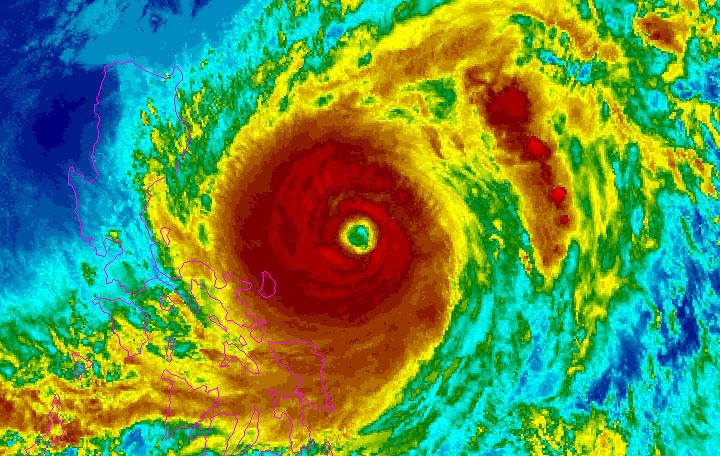MANILA—Strong winds and high waves lashed the eastern Philippines on Monday as a strong typhoon barrelled past in the Pacific Ocean, killing one man and triggering flooding in lower-lying communities, disaster officials said.
The national weather bureau issued a severe wind and heavy rainfall warning on Monday, saying “destructive typhoon-force winds extend outward up to 110 km (68.35 miles) from the centre of the storm.”





